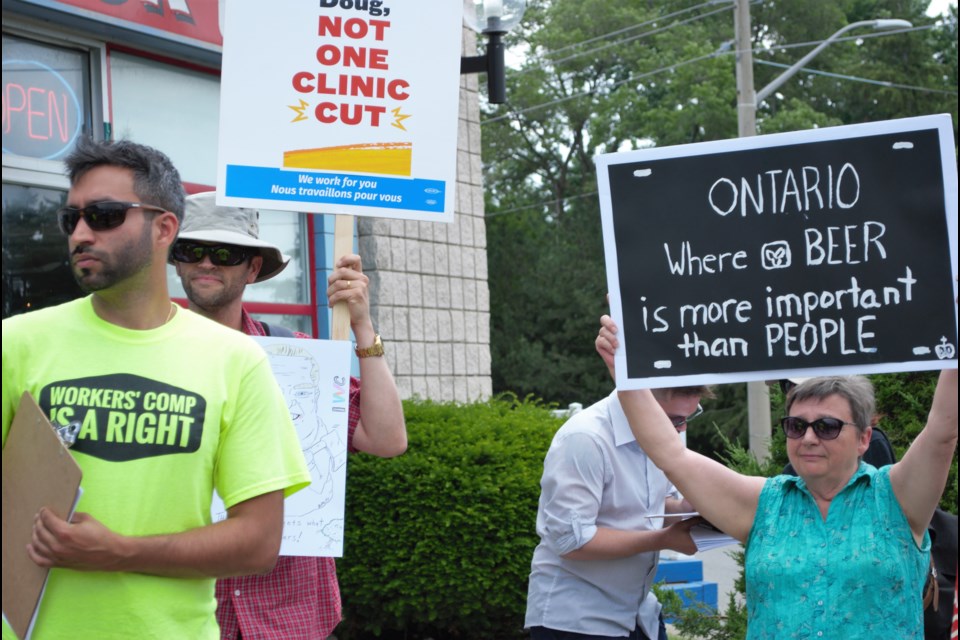More than 50 protestors swarmed Attorney General and Barrie-Springwater-Oro-Medonte MPP Doug Downey’s office in Barrie on Thursday afternoon to protest cuts to Legal Aid Ontario.
Protesters came from across Simcoe County, Toronto and Peel Region, and consisted of people who rely on legal aid services, lawyers, members of injured workers groups and members of OPSEU (Ontario Public Service Employees Union).
“A lot of injured workers are on limited income resources, so they rely on legal aid to help provide (support). Legal aid is a way we equalize access to the legal system across Ontario,” said Sara Labelle, regional vice-president for OPSEU Region 3. “Any cuts to a vulnerable population that are already living on limited resources... it’s even harder for them.”
While the cuts to Legal Aid Ontario may have trickled down to hit clinics in major cities the hardest, Labelle said the truth of the situation isn’t always so simple.
“In rural areas, you feel it more because you don’t have as many staff to share the pain,” she said.
One rural area being hit particularly hard by this round of cuts is Bracebridge.
Jayson Swain, a Bracebridge lawyer who works with the Lake Country Community Legal Clinic, outlined how the area used to have one lawyer who specialized in WSIB claims. When she left to pursue other opportunities, a hiring freeze prevented the clinic from hiring to replace her.
“I’m receiving files from people as far away away as Red Lake, Ont., near Winnipeg. I contact specialty clinics in Toronto for help on those files. I need those people to turn to,” he said.
“The cuts mean two things to us: not only are the cuts going to affect all people (who use legal aid), they’re particularly going to affect injured workers,” said Swain.
Swain said a lot of community legal clinics have got out of the business of helping injured workers, due to the level of expertise required to deal with such cases. This means injured workers can already have a difficult time finding representation in Ontario.
“We’re trying to show the government that people do care about these issues,” said Swain. “It makes economic sense to keep legal aid clinics to help injured workers because not doing it will just result in a bogging down of the system and will cost more money in the long run.”
As part of its spring budget, Doug Ford's provincial government pulled $133 million in funding from Legal Aid Ontario. The province also decreed the organization could no longer use provincial funds for refugee and immigration cases.
The cut in funding accounts for roughly 30 per cent of Legal Aid Ontario’s annual budget.
In June, the provincial government announced they will be taking on a review of legal aid by the Ministry of the Attorney General and Legal Aid Ontario. The Legal Aid Modernization Project will determine funding allocations after April 1, 2020.
Until that review is completed, the future of legal aid is uncertain.
Protestors at Thursday's event contributed to a letter outlining personal stories of how Legal Aid Ontario cuts will affect them. The letter will be delivered to Downey next week.
When reached today, Downey indicated he was in Toronto for a scheduled trip and declined comment.



